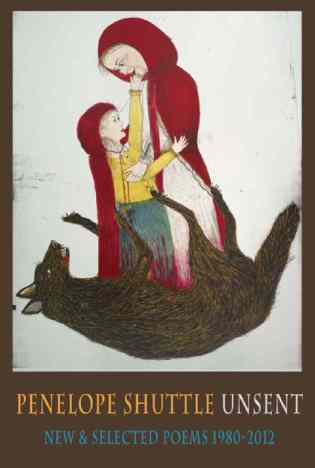
Skate: the wonderful world of ice skating in prose,
poetry and pictures
Edited by Meredith Collins
Pighog Press, 2012
ISBN 9781906309794
A fascinating collection of poetry, history and images dedicated to the art of ice skating, with an introduction by Jayne Torvill from Britain’s most famous skating duo, Torvill and Dean. It’s an ideal gift not just for novice skaters and more experienced dancers on ice but for anyone who loves elegant design and intriguing information.
Skate contains articles written by curators at the Museum of London with iconic paintings and charming photographs depicting the history of this joyous pastime. From medieval ice skates made of bone to the Frost Fairs on the Thames in London, this enchanting miscellany explores the art and history of skating. It also highlights the remarkable contribution British skaters have made over the years and the impact they’ve had on the style of figure skating we recognize today as a graceful Olympic sport.
‘Poetry on ice’ by historically renowned poets such as Addison, Blunden, Goethe and Wordsworth features alongside work by contemporary poets, to create a fascinating reading experience. Whether you’ve never gone near the treacherous surface of the rink or you can do a Mohawk turn with the best of them, you will treasure this stylish and beautifully presented anthology.
£1 from each sale of Skate goes to the charity Shelter to support their work with the homeless.
Articles by Meredith Collins, Hazel Forsyth and Jackie Keily.
Poetry by Tracy Davidson, Eugene Lee-Hamilton, William Wordsworth, Joseph Addison, Pauline Suett Barbieri, Edmund Blunden, Robert Snow, C Dibdin, Anna Kisby, Edgar Wood Syers, Curtis Tappenden, Brendan Cleary, John Liddy, John McCullough, Susan Richardson and James Thomson.
*
Extract from The Coldest Winter on Record
17th Century Frost Fairs
by Hazel Forsyth, Museum of London Curator
The great ‘singularity of the City of London’ is the Thames, wrote James Dalton in his celebratory account of the capital in 1580, for it,
“Reacheth furthest in the bellie of the land [and] … the breadth and stilnesses of the water is naviagable up and down the streame.’ London is perfectly situated ‘for if it were removed more to the west, it should lose the benefit of the ebbing and flowing; and if it were seated more towardes the East, it should be nearer to daunger of the enemie and further from the good ayre and from doing good to the inner parts of the Realme.”
The importance of the river to the communication, economy and culture of the capital is a recurring theme in sixteenth and seventeenth-century literature. Foreigners were particularly struck by the vast number of merchant vessels thronging the quays and wharves and the smaller craft ‘used by groups of people to cross the river, or to enjoy themselves in the evenings’. According to the Venetian, Alesandro Magno in 1562, the boats were ‘charmingly upholstered and embroidered cushions are laid across the seats, which are very comfortable to sit on or lean against’. By the late 16th century there were three-thousand watermen operating a water-taxi service on the Thames, but sometimes there were no boats to be had and one tourist complained that he had waited so long ‘that we could in the space of time have made the entire journey on foot and performed some errands along the way’. When the boat finally arrived it appeared to be reduced by ‘worms and time to such a condition that it could have been used as a cork’ and the two watermen seemed broken: ‘they stretched their bodies to their entire lengths while rowing, [they] succeeded only in making very slow progress’.
*
The Other Side of Winter
John McCullough
Overnight the Thames begins to move again.
The ice beneath the frost fair cracks. Tents,
merry-go-rounds and bookstalls glide about
on islands given up for lost. They race,
switch places, touch – the printing press nuzzling
the swings – then part, slip quietly under.
Still, there is no end of crystal weather.
I hoard coal, stare mostly at the chimney’s back,
fingering the pipe he gave me on the quay.
Even now it carries his greatcoat’s whiff:
ale, oranges, resolve. I remember his prison-ship
lurking out from shore, huge as Australia.
I’ll write, my dear sweet man, he said
then squeezed my thigh and turned, a sergeant
again, bellowing at a flock of convicts.
I do not have the nerve to light it.
The mouthpiece is covered with teeth marks, sweat.
I look out at my museum-garden,
the shrubs locked in glass cases,
the latticework a galaxy of frozen dew.
There is no snow in New South Wales.
I cannot put the pipe down. It makes things happen.
Last week I heard a crash and ran outside to find
a jackdaw flat on the lawn. It must have fallen
from the sky, its wings fused together
by hardened sleet, its neck twisted as though broken
from straining to see the incredible.
from The Frost Fairs (Salt, 2011).
*
from Skate (Pighog Press, 2012).
Order Skate.
Order Skate’s companion publication Ice.
Visit the Museum of London’s website.
*






